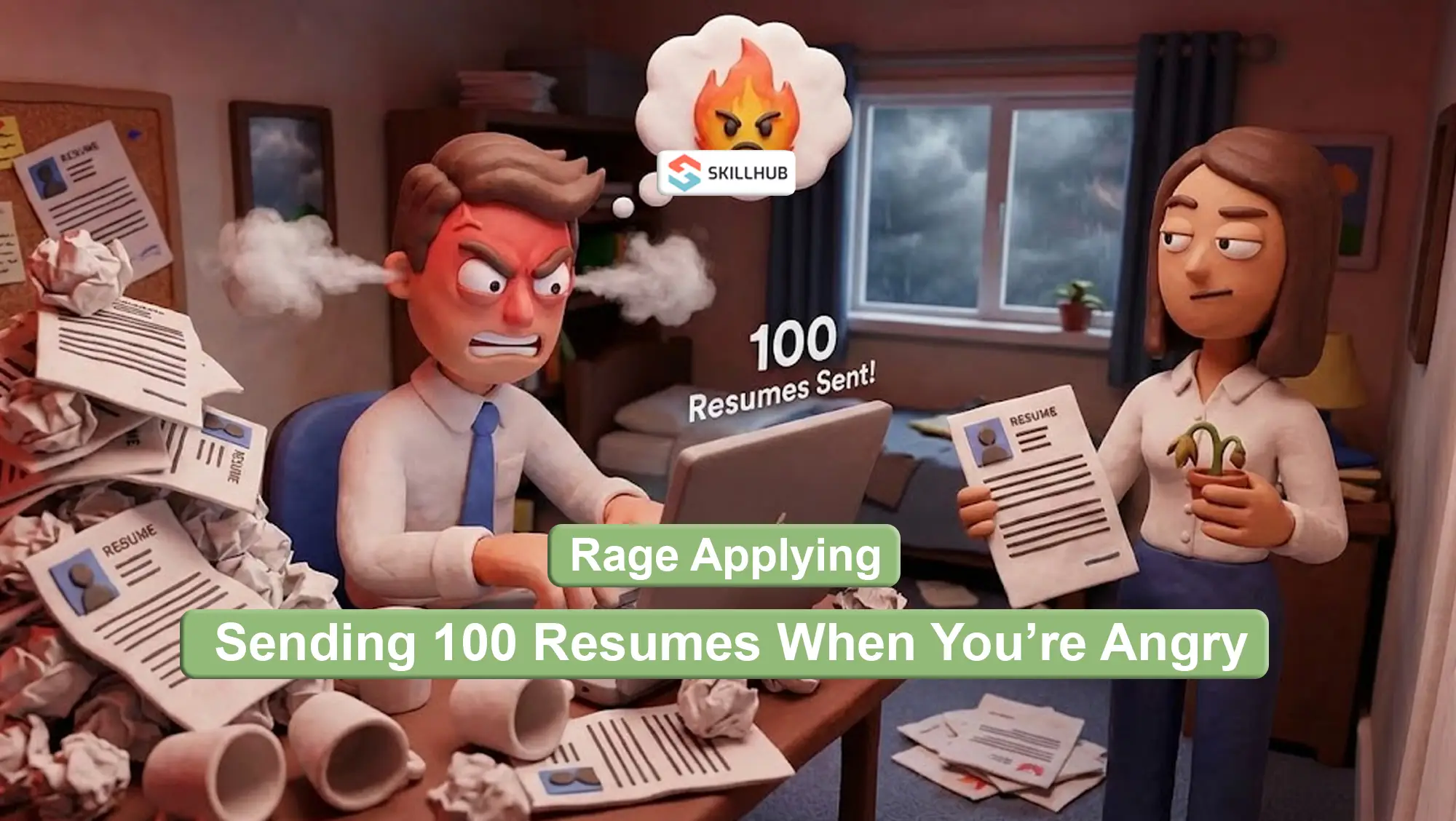All You Need to Know About Interests on a Resume

Every resume includes a section on education as well as skills and experience, and we’re all used to it. However, there is something else that shows you as a versatile person with an interesting background. By adding personal interests and hobbies to your CV, you make it stronger, especially if you have little or no experience. This way, you also ensure the company will relate to you on a personal level.
So, in this article, we explore:
- What are personal interests, and why are they necessary for a resume?
- When should you add hobbies and interests to your CV?
- Great examples of hobbies and interests on a resume;
- How to include interests on resume, depending on the company.
No doubt, CV writing requires certain skills and determination. Therefore, candidates turn to the Skillhub cv writing service as the authors from this platform have it all. With their assistance, your resume will look professional, and it will certainly help you raise your interview chances.
What Is a Personal Interest?
Perhaps, you can spend hours on end reading about medieval history. Or you have watched all the documentaries about artificial intelligence. Well, these are your personal interests then. Basically, these are subjects and topics that you adore learning about. When discovering ideas and getting knowledge, you devote time to your interests. And now, let’s study how it all relates to activities for resume.
Importance of Using Interests on Resume
Many recruiters rely on information about interests, trying to create a psychological portrait of the applicant. Indeed, topics that you enjoy studying tell a lot about your personality. And this, in turn, helps employers understand whether you are a good match for a job. It’s best if your interests are related to your field and strengthen your qualifications.
So, once you decide to add this section to your CV, be sure to learn which interests to put on resume. We are exploring it in the next paragraphs.
When Should You Include Hobbies and Interests on a Resume?
Be sure to mention personal interests on resume as they tell future employers a lot about you.
Companies with a well-developed corporate culture look for applicants who share it. Here’s the simplest example. If the team supports a healthy lifestyle and organizes sports events, then a candidate with the same mindset will surely be welcomed. If you are a proactive person with a huge volunteering experience, be sure to apply to a company that supports charity. Chances are, your background will be a huge plus there.
Plenty of businesses have special traditions, be it playing board games on Friday nights or hiking in the mountains twice a year. Of course, a candidate with the same interests will find a common language with other employees.
Hobbies and Interests
Before you mention interests and activities on resume, let’s study the difference between them.
A hobby is something you do in your spare time for the soul. You don’t do it professionally or for money; it just brings you joy. It could be collecting vintage postcards, creating candles, playing tennis, etc.
While hobbies are activities you are involved in, interests are passive topics. Thus, 19th-century fashion may be your interest, while creating corsets of that era is a hobby.
Examples of Hobbies and Interests on a Resume
Perhaps many employers will be happy to see that the hobbies and interests on your resume are somehow relevant to your job. For example, if you are a designer, then it would be amazing if you studied art and psychology in your spare time. Or let’s say you are an expert in some field (be it a doctor or lawyer), and you run a blog for those who are making their first steps in the area. Then, a recruiter may see you as a person who is truly passionate about their profession.
Below we analyze which interests to put on a resume as they can say a lot about your qualities and show you in a favorable light for a position.
But before, you might want to add them to your cover letter! Why?
Your cover letter matters! Make it professional, look at professional cover letter examples and create it yourself or hire professionals from Skillhub resume and cover letter writing services online! Easy, fast, polite and professional!
Blogging and Writing
Your interests section on resume includes blogging and writing articles? Well, it means that your written skills are on point, as well your ability to work with great amounts of data. Let’s agree that to come up with an excellent text, you need to analyze plenty of information and structure it well. And all these qualifications are essential these days.
Podcasting and Marketing
Skills and interests on resume that include podcasting certainly say that a candidate is a talented speaker. Oral communication skills are a must for self-presentation, which is why many professionals invest in specialized training. Experience with a B2B podcast agency can further demonstrate an ability to create compelling content, engage business audiences, and effectively communicate industry insights. Thus, podcasting shows how well-versed you are in the area and how you interact with the audience. When creators master their setup, they also learn to make their content visually appealing, and tools like this equipment finder help them elevate overall production quality.
As for marketing, such an industry expertise will come in handy in almost every field, be it SEO, social media management, targeted ads, etc. Every business requires a specialist with such skills as the Internet and advertising are engines of today’s progress.
Volunteering and Learning Languages
Foreign languages are a good interest to put on a resume. First, you need knowledge of more than 1 language to travel, expand your horizons and build an international career. Second, the more languages you know, the more flexible your brain and the better your memory. For example, many professionals today are choosing to learn Japanese not just for travel or cultural interest, but to stand out in industries like tech, gaming, and international business. Plus, a person who studies languages can definitely be called curious and willing to grow.
As for volunteering, this is a unique opportunity to see people from different backgrounds, travel and gain invaluable experience. By participating in various events, you can express yourself both from the creative and the organizational sides. Volunteer projects are a huge field where there is always a niche for everyone. Therefore, a person who volunteers has a developed outlook and is a good organizer.
Travel and Photography
Adaptability and flexibility, independence, deep interest in the world - all these are the qualities of a person who loves to travel. Curiosity and courage are also inseparable from traveling, as getting out of your comfort zone requires both of them.
As for photography, this hobby is a unique combination of creative and technical skills. After all, one must not only find beauty and magic in the moment but also capture it in a unique way. Therefore, many talented photographers are also strikingly interesting personalities.
So, be sure to mention these interests on a resume as they can give employers an insight into who you are.
Yoga and Art
Last but not least important interests to include on resume are yoga and art.
More and more people practice yoga as it brings peace of mind and deep relaxation. No doubt, it helps us to unwind, get rid of stress and forget about everyday troubles. So, a candidate whose hobby is yoga is likely to be mentally stable and prone to crises.
Speaking of art, it is closely related to imagination, innovation, and thinking out of the box. Look through lists of the most sought soft skills, and you’ll definitely see the ones we mentioned on the top of them.
How to List Interests on Your Resume?
Confused about putting interests on resume? Here’s a little guide:
- Think about what really excites and inspires you;
- Be more precise - if you love poetry, then indicate to which period it dates back;
- Collect your interests in a separate section called “Hobbies” or “Hobbies & Interests”;
- List 5 interests, and make sure none of them are banal or overly broad (reading is not okay, in contrast to reading British detective novels).
Believe us, knowing how to list hobbies and interests on a resume, you will certainly make your CV stand out. And it will look even better with good organization. By turning to Skillhub writers, you ensure that the titles of your CV sound specific and emphasize your skills in the best possible way.
Example of Resume With Personal Interests
To include interests on resume in an appropriate way, study our examples.
Interests:
- Medieval history;
- Spanish language and culture;
- Art Nouveau;
- Latin music;
- Social causes.
Example of hobbies:
- Running a travel blog;
- Playing chess;
- Baking;
- Playing in the amateur theater;
- Decoupage.
Pick the Right Personal Interests for the Chosen Company
As we mentioned earlier, each company has a certain corporate culture, values, and traditions. And if your interests and hobbies coincide, then you will fit into the team more easily. But for this, you need to highlight them correctly, and most importantly - be honest when listing interests on resume.
Research Information About the Company Thoroughly
A detailed study of the company you are applying for is a necessary step. Otherwise, how are you going to be accepted by it?
- Carefully read the job description - everything you are looking for is already there, from skills to what a perfect candidate looks like;
- View the company website and employee profiles. What do they have in common?
- Explore social media accounts;
- Look for press releases and company reviews on sites like Glassdoor.
Having all this information in mind, you can move on to compiling interests and hobbies on resume.
Pick a Suitable Interest
Of course, your interests should show you as a person suitable for the position. And you already know what the ideal candidate looks like. This gives you an insight into what interests to put on a resume.
For example, you are applying for a management position that requires openness and strong communication skills. Football will be an excellent choice for a hobby: here, you show yourself as a team player who knows how to achieve goals and unite the team. At the same time, collecting scale model ships would be a bad choice, as it is an introverted activity that says nothing about your interactions with others. Similarly, collecting luxury watches, like Tissot, while a fascinating hobby for those who appreciate craftsmanship, might not highlight teamwork or communication skills that some employers prioritize.
Write Your Activities at the Bottom of Your Resume
Your interests and activities should be mentioned at the end of a resume. Why? They are a good way to end your resume, and from a psychological point of view, it will be easier for the recruiter to perceive it. You will definitely make the right impression, as the correct resume structure shows your respect for the people who will read it.
Write About Your Interests With Devotion
If you make a list of good interests to put on a resume based on what the company might like, but not you, you are not only betraying yourself. You are also creating new problems. A lie is revealed sooner or later, remember?
For example, you write that you are interested in artificial intelligence, although the only thing that connects you with this is an episode of «Black Mirror» that you watched on Netflix once. What if your recruiter turns out to be a great specialist in this field? The first question they ask will lead you to failure.
Therefore, it is better to write about what you really love. Let the recruiter see the sparkle in your eyes and understand how passionate you can be.
Omit Those Personal Interests on a Resume
The interests and hobbies section can actually be a place for terrible mistakes, which is why we’re here to warn you. Be sure to avoid mentioning hobbies that:
- Are associated with danger and cruelty;
- Deal with politics, sex, and religion;
- Reveal too much personal information about you;
- May seem strange (be it collecting rare species of crickets or spontaneous purchases of felt hats).
First, you definitely don’t want to hurt anyone’s feelings. Second, hobbies should be to your advantage and reveal good things about you, not vice versa.
Additional Tips for Interests That Look Good on a Resume
Now, let’s summarize useful tips for you when compiling a list of resume activities.
- Be specific. A hobby like watching movies says nothing about you, but watching the French New Wave sounds more convincing;
- Be truthful. If you show yourself as a liar from the very beginning, then nothing good will come of it;
- Don’t be weird. Sometimes the line between a unique personality and a strange one is very thin. So don’t cross it;
- Be careful with humor. Believe us, your wit is best applied in a personal conversation with a recruiter, not on a resume. You never know in whose hands it will fall and how the person will react to your jokes.
Are you struggling to craft the persuasive resume required to get an amazing job in today's competitive labor market? You can get the help you need today by contacting an engineer resume writer or doing it yourself using resume examples from Skillhub.
To Wrap It Up
So, should you put hobbies and interests on a resume? If your one-page resume has room for one more section, feel free to do it! Hobbies will tell a lot about you as a professional and as a person in the first place. After all, companies are not looking for robots that will perform tasks silently. They want to hire a personality with original ideas who has a natural curiosity and can fit into the team.
- The main piece of advice when including interests on a resume is to make sure they work in your favor;
- Study the requirements for the job and write about interests, keeping them in mind. Is the company looking for an employee who is well-versed in stressful situations and can make decisions quickly? Then, indicate that you are the forward on your football team;
- Be precise and remember that 5 interests and hobbies will be enough;
- Keep them at the bottom of your list.
And remember, if you suffer from writer’s block or get completely lost, we always have your back. It is enough to turn to Skillhub executive resume writers for help: they know exactly what your application needs and how to catch the recruiters’ attention in the best possible way. Our goal is to help you land more interviews, and our experience will surely make your job search less stressful. So, you’ll certainly find your dream position!
%20(1).png)



%20(1).webp)